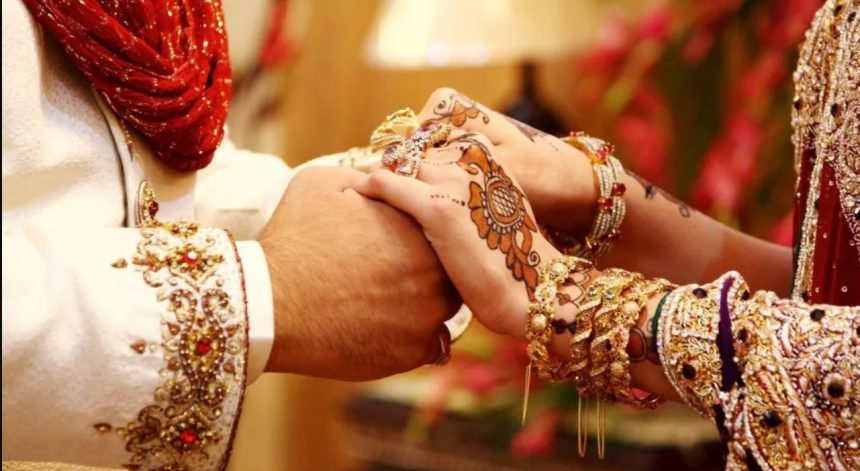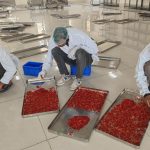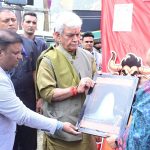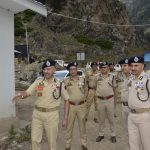Srinagar, Oct 26: The Jammu and Kashmir government is exploring the feasibility of a 50% increase in marriage assistance provided to low-income families under the State Marriage Assistance Scheme.
As per the details accessed by Rising Kashmir, the proposed adjustment is to ensure enhanced financial aid for economically disadvantaged households struggling to meet marriage-related expenses.
Currently, the scheme offers a one-time financial support of Rs. 50,000 to female beneficiaries from families holding Antyodaya Anna Yojana (AAY) or Priority Household (PHH) ration cards.
Introduced by the Central Government on December 2, 2015, and formally implemented in J&K on December 8, 2015, the scheme has been instrumental in providing relief to low-income families preparing for marriage expenses.
Reliable sources told Rising Kashmir that Social Welfare Minister Sakeena Masood Itoo in a meeting recently directed the Social Welfare Department to assess the feasibility of increasing the assistance from Rs 50,000 to Rs 75000.
Sources said that the assessment will include an analysis of current funding allocations, projected expenses for a larger number of beneficiaries, and the overall financial impact of the increase on the state’s social welfare budget.
Sources said that the department will ensure that the revised scheme remains sustainable and inclusive for which a comprehensive evaluation will be conducted to consider both the economic viability and the potential long-term benefits for recipients.
The department will look for a plan that aligns with both fiscal constraints and social objectives, they added.
Dengue: 4,315 cases in J&K, one death so far
Srinagar, Oct 26 : Jammu & Kashmir is witnessing a continuous rise in dengue cases this year, with 4,315 cases and one death confirmed so far.
Official data reveals that of the 4,315 dengue cases reported, 2,716 are from Jammu, 462 from Samba, 388 from Kathua, 216 from Udhampur, 160 from Reasi, 112 from Rajouri, 57 from Poonch, 95 from Doda, 38 from Ramban, 13 from Kishtwar, 17 from Kashmir, and 31 from other states.
State Malariologist Dr D.J. Raina informed KNO that while cases continue to rise, the situation is under control. “So far, 24,927 tests have been conducted, of which 4,315 have returned positive. By this time last year, 33,394 tests were conducted, and 4,453 were positive,” he said.
Dr Raina said that out of the 4,315 positive cases, 457 were admitted to hospitals. Among them, 374 have been discharged, 71 remain under treatment, and one patient has succumbed to the disease.
To curb the spread of dengue, the malariologist urged the public to take preventive measures, emphasizing that since there is no vaccine for dengue, proactive prevention is essential. “Authorities are implementing effective measures to contain dengue, and while vigilance is necessary, there is no need to panic,” he added.
Medical professionals advise the public to use mosquito repellents, wear long-sleeved clothing, and avoid mosquito-prone areas. Dengue-spreading mosquitoes breed in stagnant water, especially during the monsoon season, making it essential to eliminate any standing water around homes, schools, workplaces, and nearby areas. “Preventing dengue fever begins with eliminating mosquito breeding sites and avoiding mosquito bites,” doctors advised.
These mosquitoes are most active during the day, and medical experts recommend covering exposed skin, using mosquito nets for daytime rest, and spraying nets with repellents for added protection.
Common symptoms of dengue include fever, headache, pain behind the eyes, muscle and joint pain, rash, nausea, and vomiting. The advisory warns that individuals experiencing severe symptoms—such as stomach pain, persistent vomiting, bleeding from the nose or gums, blood in the vomit or stool and restlessness—should seek immediate medical attention.
Last year, Jammu & Kashmir reported approximately 6,403 dengue cases, and 2022 saw a record high of 8,269 cases with 18 fatalities—(KNO)








